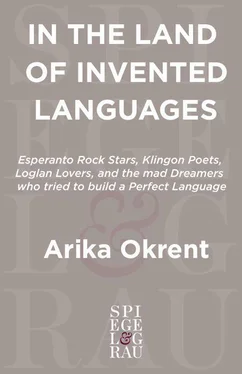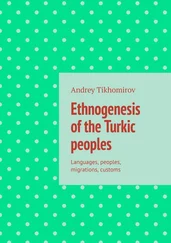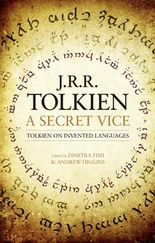It also seemed to already possess many of the qualities that the language inventors were after. When Count Coudenhove-Kalergi, son of an Austro-Hungarian father and a Japanese mother, founded the Paneuropean Union in 1923, he proposed that English be the language of its administration, claiming that the “ease with which the English language may be learned, and its intermediate position between the Germanic and the Romance language groups, predestine it to the position of a natural Esperanto.”
The 1920s was the last decade of vigor in the second era of language invention. Though a few international language projects continued to crop up every year (as they still do today), even the language inventors were turning toward English. These inventors accepted English as an international language, but thought it could be made into a better international language by getting rid of some of its messy inconsistencies.
Some focused exclusively on spelling reform, as the Swede Robert Zachrisson did in his Anglic (1930):
Forskor and sevn yeerz agoe our faadherz braut forth on this kontinent a nue naeshon, konseevd in liberty, and dedicated to the propozishon that aul men ar kreaeted eequal.
Others sought to regularize the grammatical irregularities, as Ruby Olive Foulk did in her Amxrikai Spek (1937):
Pronouns and verbs:

Plurals:
man, mans
Comparatives:
good, gooder, goodest
Other regularizations:
Frenchman, Americaman, Italiman, Mexicoman historiman, scienceman, artman, musicman
The best-known project of this kind was C. K. Ogden’s Basic English , first published in 1930. Ogden was a Cambridge-educated editor, writer, translator, and mischief maker. As a student, he opposed compulsory attendance at chapel and, with a few of his like-minded friends, founded a group called the Heretics Society, where he honed his skills in questioning authority and challenging dogma. He supported progressive social causes like women’s rights and birth control, and generally enjoyed being on the wrong side of stuffy propriety. At his own request, his entry in Who’s Who says that he spent 1946–48 “bedeviled by officials.”
Basic English was his proposal for an international language based on a reduction of English to 850 words. Though he believed in spelling reform, he was practical enough to see how unlikely it was to be accepted (he called it “a problem waiting for a Dictator”), and instead tried as much as possible to build his Basic vocabulary around words that presented “no special difficulty.” He claimed that of the 850 words he had chosen, “less than a hundred involve wanton violations of orthographical decency.” He also objected to irregular plurals and past-tense forms, blaming their persistent existence on a dastardly cabal of “printers, lexicographers, and schoolmasters.” However, realizing that an English that looked like English was more likely to succeed, he left the grammar alone.
Instead, he simplified the language by doing away with words like “disembark,” “tolerate,” and “remove” and replacing them with “get off a ship,” “put up with,” and “take away.” In this way, he eliminated almost all verbs—including “to eat” (“have a meal”) and “to want” (“have a desire”)—from his list of 850, leaving them to be expressed with what he called “operators” like “get,” “put,” “take,” “come,” “go,” “have,” and “give.” Ogden believed that such a recasting not only made English easier to learn and understand but also had the potential to cure our minds of some bad habits. He believed that much of the world’s troubles could be traced to the negative effects of what he called “Word Magic,” the illusion that a thing exists “out there,” just because we have a word for it. When we are under the spell of Word Magic, we fail to see that “sin” is a moral fiction, “ideas” are “psychological fictions,” “rights” are “legal fictions,” and “cause” is “a physical fiction.” (He also feels compelled to pick on “swing” by pointing out that it is a “saxophonic fiction.”) Word Magic makes us lazy; we don’t question the assumptions that are hidden in words, and so we allow ourselves to be manipulated by “press, politics, and pulpit.” Ogden thought Basic English could work as an antidote to Word Magic by forcing people to express themselves in simple terms, thus forcing them to really think about what they are saying.
Winston Churchill, himself a tireless advocate of plain language, was a fan of Basic English and made efforts to promote it. He thought it could help create a different kind of empire, one based not on “taking away other people’s provinces or land or grinding them down in exploitation” but on a shared language. He encouraged the BBC to take it to the airwaves and teach it far and wide.
He also appealed to President Roosevelt to join the cause of Basic English. Roosevelt promised to look into the matter, but he couldn’t resist teasing that Churchill’s inspiring speech about offering his “blood, toil, tears, and sweat” to his country may have been less effective if he “had been able to offer the British people only blood, work, eye water and face water, which I understand is the best that Basic English can do with five famous words.”
For all they did to argue for its virtues, neither Churchill nor Ogden actually used Basic English in their own writings. They rather took luxurious advantage of English vocabulary. But Ogden didn’t really intend for Basic English to replace full English. It was to serve as a second, auxiliary language, a utilitarian lingua franca. He advertised two other benefits. For foreigners, it would serve as an easy entrée into fuller English. For English speakers, it would serve as “an apparatus for the development of clarity of thought and expression.”
I’m not so sure Basic English fit the bill on either point. Although sometimes the Basic English version is clearer (“First, God made the heaven and the earth.” I like that. It’s snappy), at other times it seems to strangle itself on its own restrictions:
Seven and eighty years have gone by from the day when our fathers gave to this land a new nation—a nation which came to birth in the thought that all men are free, a nation given up to the idea that all men are equal.
“Came to birth in the thought that all men are free”? How does that clarify things? And if you don’t speak English, how are you supposed to know that “given up to” means “dedicated to”? Just because you are familiar with the “operator” words that Ogden expected to bear the brunt of so much meaning, you don’t necessarily have any idea what they mean when put together. It is precisely those words, and the huge number of idioms they participate in, that make English such a headache for the non-native speaker. You haven’t really solved much by replacing “happen” with “come about,” “tease” with “make sport,” or “intend” with “have a mind to.”
In 1943, Churchill touted Basic English in a speech at Harvard, and soon the reporters were at Ogden’s doorstep. He received them wearing a mask and, over the course of the interview, exited and entered the room through different doors, each time wearing a different mask. This behavior was a symptom of his generally irreverent attitude and what friends called his “impish humor.” He wore masks on other occasions, explaining that when the speaker wears a mask, the listener is forced to pay attention to the content of the speech. Whatever the content of his speech that day, he did nothing to dispel the impression that Basic English was kind of a kooky idea. When Churchill left office in 1945, officials at the BBC suggested that Basic English be left “on a high shelf in a dark corner.”
Читать дальше













